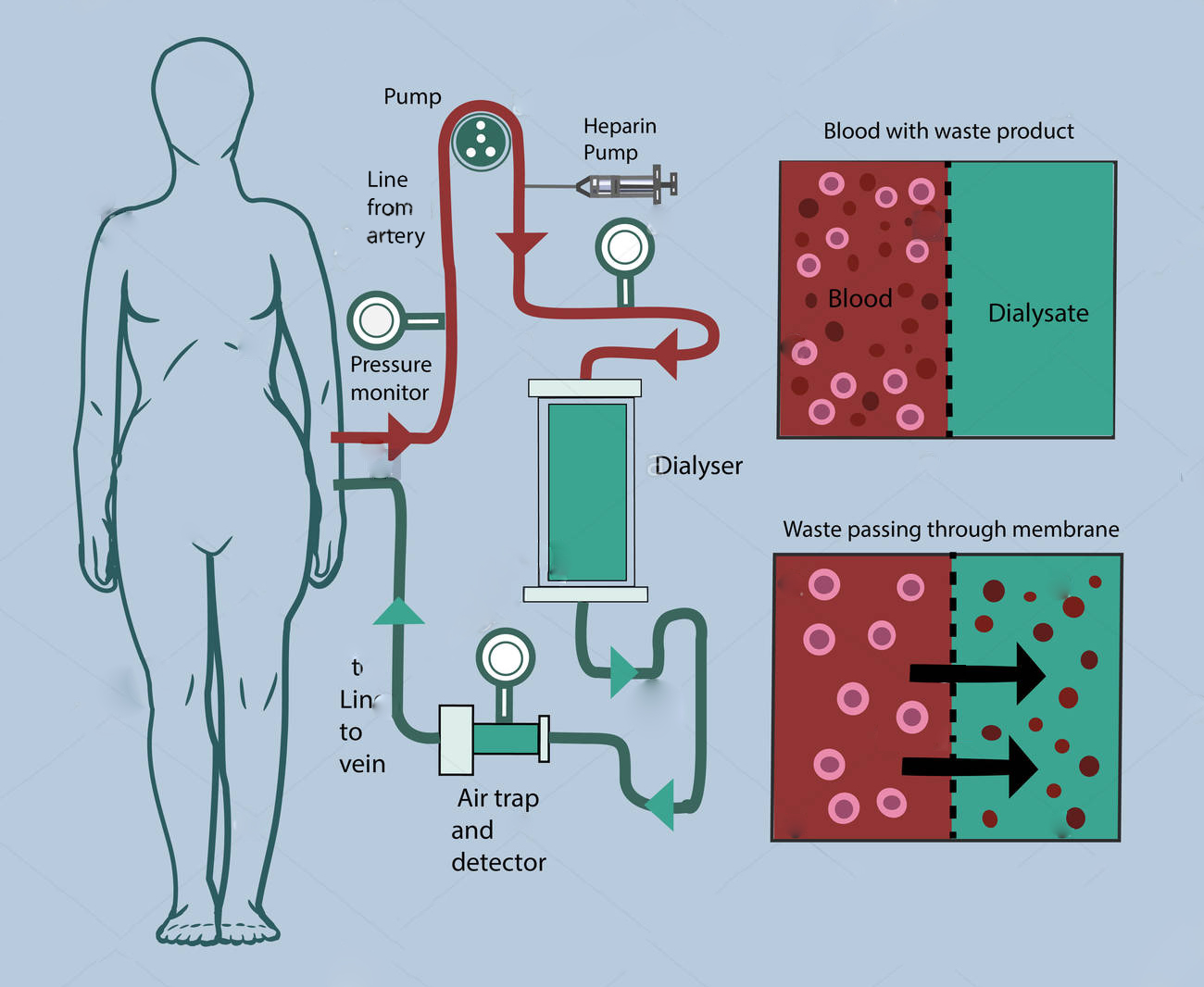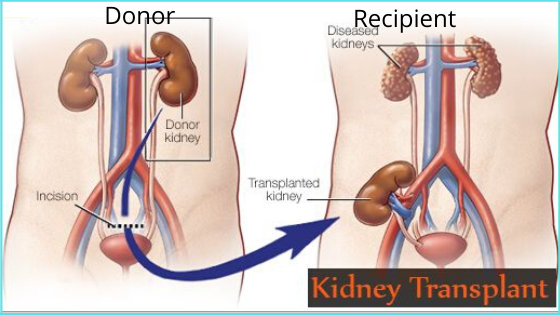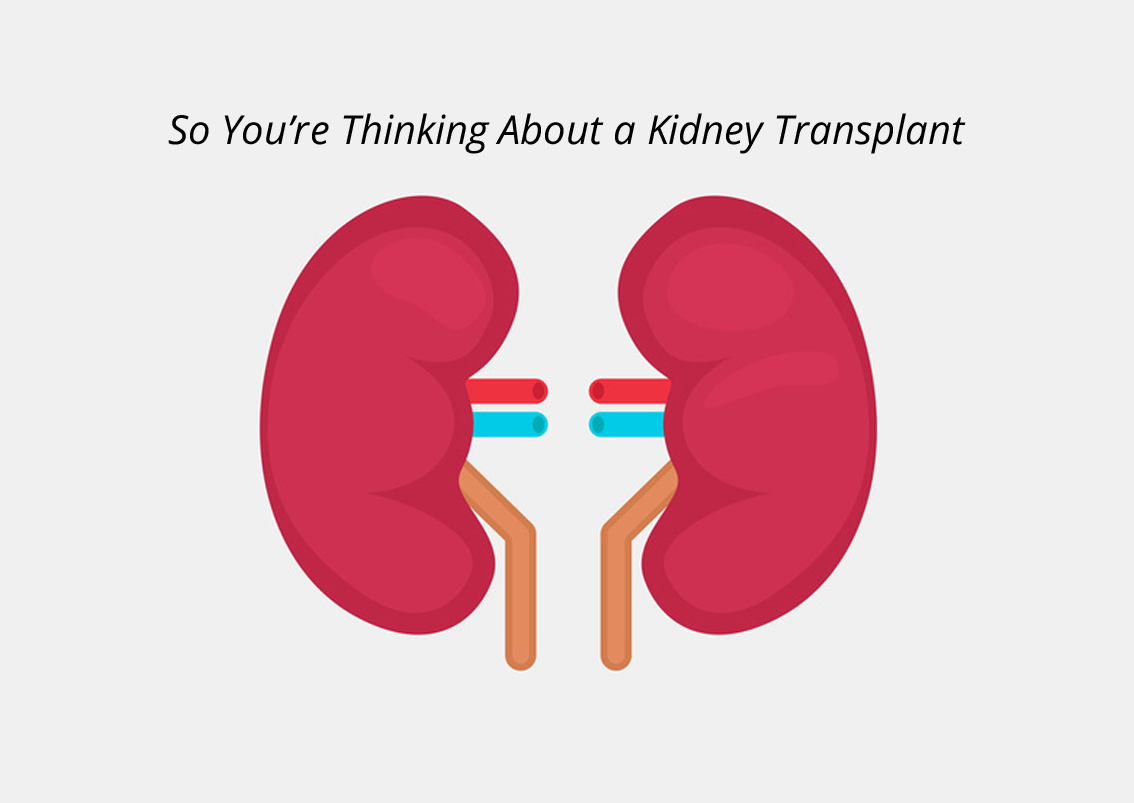
What is renal replacement therapy?
Renal replacement therapy” is another term for the different treatments for kidney failure.
Normally, the kidneys filter the blood and remove waste and excess salt and water. Kidney failure, also called “end-stage renal disease,” is when the kidneys stop working completely.
If the kidneys stop working completely, people can choose between 3 different treatments to take over the job of the kidneys.

What are my choices for renal replacement therapy?
You can choose between:
- Kidney transplant : A kidney transplant is surgery in which a doctor puts a healthy kidney in a person whose kidneys are diseased. The healthy new kidney can then do the job of the diseased kidneys. (People need only 1 kidney to live).
A new kidney can come from a living donor (usually a family member or friend) or a, in countries with deceased donor programs :a dead donor. After a kidney transplant, people need to take medicines for the rest of their life to keep their body from reacting badly to the new kidney.
More information about a kidney transplant can be found in other articles.

- Peritoneal dialysis : Until this moment, this modality is not available at an adequate level in Egypt. Peritoneal dialysis is a procedure that people do at home every day. It involves piping a special fluid into the belly. This fluid collects waste and excess salt and water from the blood. Then, the used fluid drains out of the belly . Before people can have peritoneal dialysis, they need surgery to have a tube put in their belly. The tube allows the fluid to get in and out of the belly.
- Hemodialysis : Hemodialysis is a procedure in which a dialysis machine takes over the job of the kidneys. The machine pumps blood out of the body, filters it, and returns it to the body . Before people can have hemodialysis, they need surgery to create an “access.” An access is a way for the blood to leave and return to the body.
More information about hemodialysis can be found in other articles.
- What are the benefits and downsides of the different treatments?
Each modality has its ups and downs.
Hemodialysis requires going to your dialysis centre 3 times a week, dietary restrictions, and occasional discomfort during or after the sessions.Transplantation gives you more freedom and most transplant recipients live a healthier and longer life. However, transplantation is a major surgery, you meed to have a donor (in Egypt you need to comply with the Egyptian Transplantation Law), the transplanted kidney has a life time and you need to take medications to preserve your new kidney

How long does a transplanted kidney live?
This is highly variable between different people. Generally, out of every 100 transplanted kidneys, 98 will work after surgery, 85 will continue working for 5 years and 50 will keep working well for more than 15 years.
This depends on many factors, the most important of which is to take your medications on time and do your regular routine follow up with your doctor.
- How do I choose between the different treatment options?
You, your doctor, and your family will need to work together to find the treatment that’s right for you. It will depend partly on your condition, overall health, and home situation. Your doctor can explain all of your options.
People usually benefit most from a kidney transplant. But a new kidney is not always available. Plus, not everyone who wants a kidney transplant can get one. People need to meet certain conditions to be able to get a kidney transplant.
When thinking about your choices, you should also know that:
- If you are waiting for an eligible donor, you will most likely need to start peritoneal dialysis or hemodialysis while you wait.
- If your transplanted kidney fails after some time, you may do another transplant or go to dialysis.
- Can I choose not to have any of these treatments?
You, your doctor, and your family will need to work together to find the treatment that’s right for you. It will depend partly on your condition, overall health, and home situation. Your doctor can explain all of your options.
People usually benefit most from a kidney transplant. But a new kidney is not always available. Plus, not everyone who wants a kidney transplant can get one. People need to meet certain conditions to be able to get a kidney transplant.
When thinking about your choices, you should also know that:
- If you are waiting for an eligible donor, you will most likely need to start peritoneal dialysis or hemodialysis while you wait.
- If your transplanted kidney fails after some time, you may do another transplant or go to dialysis.
